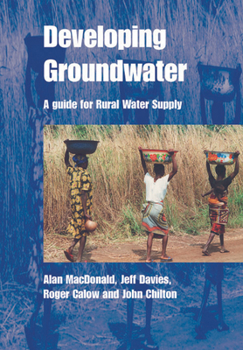Developing Groundwater: A Guide for Rural Water Supply
"In many rural areas, groundwater is the only feasible way of providing safe, reliable water supplies. However, developing groundwater is not always straightforward. To meet the targets set out in the Millennium Development Goals, more attention needs to be paid to finding and developing groundwater in a sustainable, cost-effective and participatory manner.
Developing Groundwater provides a user-friendly guide to this key topic, bringing together for the first time the wide range of techniques required to develop groundwater for community water supplies. This practical manual gives information on effective techniques for siting wells and boreholes, assessing the sustainability of sources, constructing and testing the yield of boreholes and wells, and monitoring groundwater quality. The authors set the technical aspects of rural water supply firmly in their socio-economic context, so that readers can take proper account of community concerns as well as purely engineering questions.
Packed with helpful illustrations this book is indispensable for all rural water supply project staff in developing countries.
Alan MacDonald, Jeff Davies and John Chilton are hydrogeologists at the British Geological Survey with more than 75 years' experience amongst them. They have worked extensively in Africa, Asia and the Pacific in partnership with government departments, NGOs, research institutes and rural communities. Much of their work has focussed on the practical issues of developing groundwater resources for rural water supply. Roger Calow is a water resource economist and policy specialist with the British Geological Survey, and has worked extensively in Africa, Asia and the Middle East on rural water supply and management projects.





